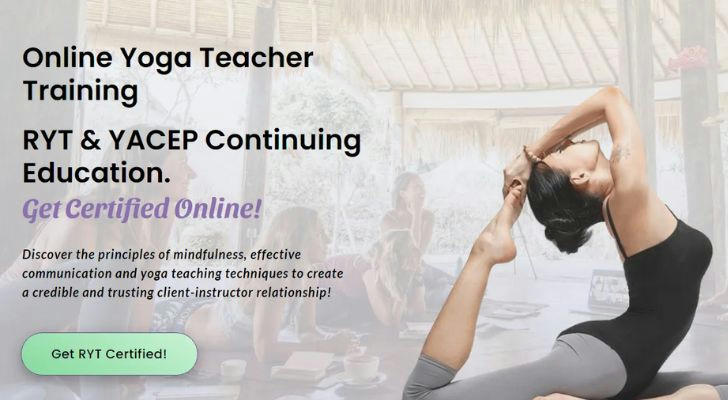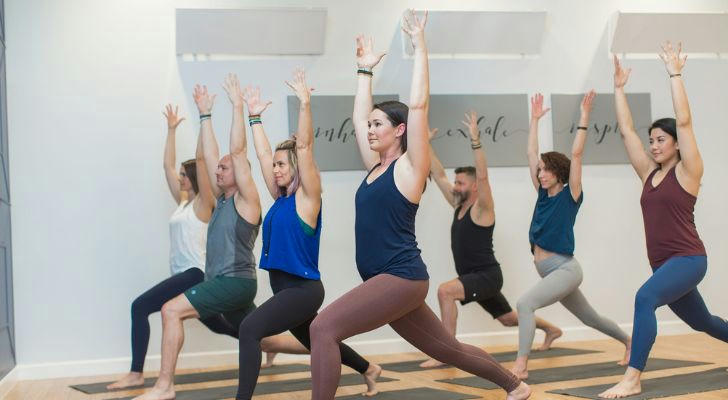Yoga Certification Courses: Master the Art of Teaching and Wellness
Yoga is more than just physical exercise—it’s a practice of mindfulness, balance, and overall well-being. If you’re passionate about yoga and want to deepen your practice or teach others, enrolling in a yoga certification course is the perfect way to gain the necessary skills, knowledge, and credentials.
A comprehensive yoga certification program not only enhances your personal practice but also equips you to lead classes with confidence, helping others achieve physical and mental harmony. Whether you’re aspiring to be a yoga instructor or seeking to expand your knowledge, a professional certification can open doors to a fulfilling and rewarding career.

Why Take a Yoga Certification Course?
A Rapidly Growing Industry
With the rising global awareness of health and well-being, the yoga industry is expanding at an impressive rate. According to Research and Markets, the global yoga market is expected to grow at a compound annual growth rate (CAGR) of 9.8% from 2023 to 2028, highlighting the increasing demand for professional yoga training and certification programs.
Furthermore, statistics from Yoga Alliance reveal that more than 55% of yoga practitioners in the United States are interested in enrolling in certification programs, either to deepen their personal practice or to become professional instructors. This trend underscores the fact that yoga is not just a wellness activity but also a promising career path.
Develop a Deeper Understanding of Yoga
Yoga is more than just poses—it’s a holistic practice that includes breath control, meditation, and philosophy. A well-structured certification course will help you:
- Learn Proper Techniques: Master various asanas (postures) and alignment principles.
- Understand Yoga Philosophy: Gain insight into the ancient traditions and principles of yoga.
- Improve Breathwork & Meditation: Develop skills in pranayama (breath control) and mindfulness.
By deepening your knowledge, you’ll not only enhance your own practice but also be able to guide others effectively.
Gain Hands-On Teaching Experience
A yoga certification course includes practical training that helps you build confidence as an instructor. You’ll learn:
- Class Sequencing: Structure and design yoga sessions for different levels.
- Adjustment & Alignment: Assist students in achieving safe and effective postures.
- Teaching Methodology: Develop communication skills to engage and motivate students.
Practical teaching experience ensures you’re ready to lead classes with clarity and confidence.
Open Career Opportunities in Yoga Instruction
Becoming a certified yoga instructor allows you to explore a range of career options, including:
- Studio Instructor: Teach classes at yoga studios or fitness centers.
- Private Yoga Coach: Offer personalized yoga sessions for individuals or small groups.
- Corporate Yoga Trainer: Conduct workplace wellness sessions for businesses.
- Yoga Retreat Leader: Guide yoga retreats and workshops worldwide.
- Online Yoga Instructor: Teach virtual yoga classes to a global audience.
With the increasing popularity of yoga, certified instructors are in high demand in health clubs, wellness centers, and online platforms.

What You’ll Learn in a Yoga Certification Course
Anatomy and Physiology
Understanding how the body moves is essential for safe and effective yoga practice. Your training will cover:
- Muscle Engagement: Learn how different muscles function in yoga poses.
- Body Alignment & Injury Prevention: Understand safe movement patterns.
- Effects of Yoga on the Nervous System: Explore how yoga supports stress relief and relaxation.
These insights will help you guide students safely through their practice.
Asana Practice and Adjustments
Learn proper techniques for performing and teaching various yoga poses, including:
- Foundational Poses: Master basic postures like Downward Dog, Warrior Poses, and Tree Pose.
- Advanced Asanas: Explore more complex movements such as inversions and arm balances.
- Props & Modifications: Use props like blocks and straps to support all skill levels.
With hands-on training, you’ll develop the ability to offer individualized adjustments and modifications.
Yoga Philosophy and Mindfulness
A well-rounded yoga certification course includes teachings on:
- The Eight Limbs of Yoga: Explore Patanjali’s guide to a yogic lifestyle.
- The Chakras & Energy Flow: Understand how energy moves through the body.
- Meditation & Mindfulness Techniques: Learn practices to cultivate inner peace.
By incorporating philosophy into your teaching, you’ll offer students a more enriching yoga experience.
Career Paths After Yoga Certification
Once you complete your certification, you can pursue various roles, including:
- Yoga Studio Instructor: Teach group classes at local studios or wellness centers.
- Personal Yoga Coach: Offer one-on-one training tailored to individual needs.
- Yoga Retreat Leader: Organize immersive yoga retreats and workshops.
- Therapeutic Yoga Instructor: Work with individuals seeking yoga for healing purposes.
- Online Yoga Teacher: Create digital yoga programs and virtual classes.
The flexibility of a yoga teaching career allows you to work independently, travel, or even build your own yoga brand.
How to Choose the Right Yoga Certification Course
When selecting a course, consider programs that offer:
- Accreditation by a Recognized Yoga Organization: Look for Yoga Alliance-approved programs.
- Comprehensive Curriculum: Ensure the course covers anatomy, teaching methods, and philosophy.
- Hands-On Training: Choose a program that provides practice teaching opportunities.
- Flexible Learning Options: Decide between in-person, online, or hybrid training programs.
Popular yoga certification options include:
- 200-Hour Yoga Teacher Training (YTT): The foundational certification for aspiring instructors.
- 300-Hour or 500-Hour Advanced YTT: Ideal for deepening expertise and advancing your teaching career.
- Specialized Certifications: Focused training in prenatal yoga, children’s yoga, or therapeutic yoga.
Choosing the right program will set you up for success in your yoga teaching journey.

Final Thoughts
A yoga certification course is an excellent investment in personal growth and professional development. Whether you’re looking to teach or simply deepen your practice, proper training will help you gain confidence, knowledge, and the ability to guide others on their yoga journey.
Industry Insights and Growth in Yoga Careers
- Market Expansion: According to Research and Markets, the global yoga industry is expected to grow at a 9.8% CAGR from 2023 to 2028, indicating strong demand for certified instructors.
- Growing Interest in Certification: Yoga Alliance reports that more than 55% of yoga practitioners in the U.S. are interested in certification programs, highlighting the increasing professionalism in the field.
- Career Flexibility: Certified instructors have numerous career paths, from studio teaching to online coaching and retreat leadership.
If you have a passion for wellness and helping others, a yoga certification can be your gateway to a fulfilling and balanced career!
